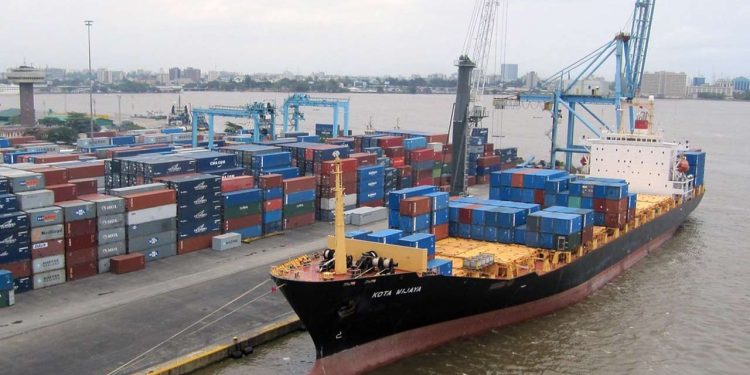Nigeria has placed hopes on the Lekki deep sea port–West Africa’s biggest port (after completion)–to end cargo waiting times offshore and help resuscitate the country’s economy.
The Nigerian Port Authority believes that the $1.5 billion Lekki port being built by China Harbour Engineering Co, which is 95 percent complete and set to commence operation in 2022, will help reverse the putrefying growth and plummeting foreign investment straining Nigeria’s economy.
Citing the comments made in an interview by the Managing Director of the Nigerian Ports Authority, Mohammed Bello-Koko, Bloomberg disclosed that cargo ships currently wait offshore for as much as a month before they are unloaded in Lagos, leading to massive cargo congestion in Nigeria’s commercial hub.
Bello-Koko stressed that “the planned opening in March of the Lekki Deep Sea Port, on the eastern edge of the city, has the potential to slash cargo wait times to two days. “It changes everything because Lekki will be faster, it has more space, and it is more modern.”
The port is being developed in phases and will have the capacity of handling 6 million 20-foot containers.
What they are saying
Bello-Koko commented on the operational capacity of the project and the general state of ports within the country. He disclosed that when the Lekki port is fully operational in 2023, it will more than double the capacity of Lagos’s ports, and will accommodate far bigger ships.
He said, “It is a game changer that will bring back most of the cargoes we are losing to neighboring countries.”
Emphasizing the need for more than one functional port, Bello-Koko said “We need to rehabilitate the ports, if we allow it to collapse, it will be catastrophic.” He further disclosed that “the government also plans to upgrade the existing ports and has received pledges from three multilateral lending agencies to raise $600 million for the modernization of Tin Can, one of the main ports.”
What you need to know
-
The much-needed development of this public infrastructure came at the right time as cargo congestion at the port has been a major deterrent to sustainable returns on foreign direct investment.
Inefficiency and corruption at the port have been weighing heavily on Nigeria’s economy to the tune of N1.01 trillion (about $1.95 billion) in government revenue and N4.1 trillion (about $8.15 billion) in private sector revenue annually.
The Lekki deep sea port is co-owned by the Nigerian government, Singapore-based Tolaram, which is Nigeria’s biggest food company, and state-owned China Harbor Engineering Company.
The port is operated by a subsidiary of French shipping giant CMA-CGM. Trial port operations will begin in December ahead of a full commercial start in March.











